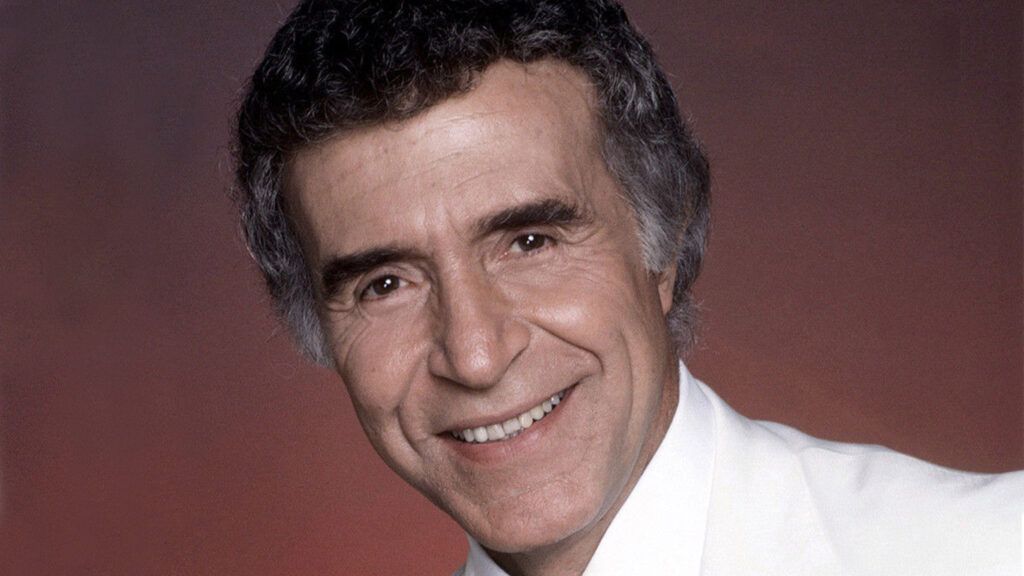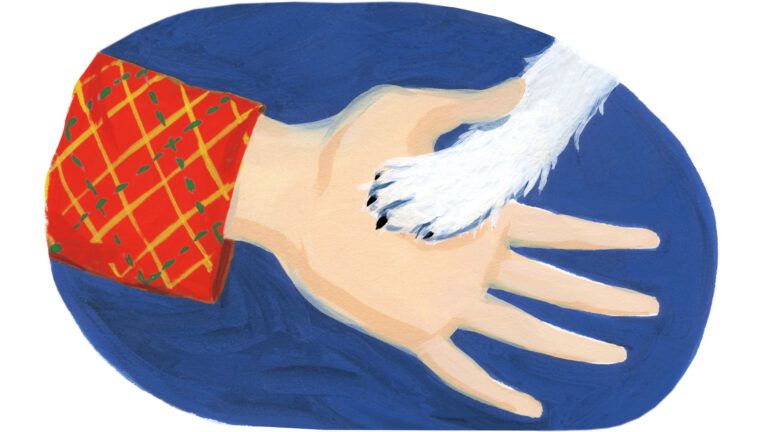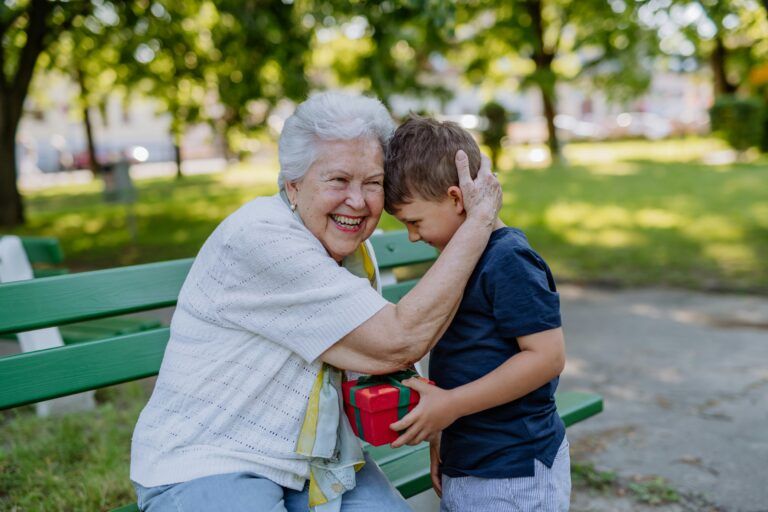As I hung up the phone on our kitchen all, I turned to see my wife Georgiana’s smiling face. Her eyes were shining with excitement.
“You got the part?” she asked.
“Yes,” I said slowly—still not quite believing the news myself. The role was in a new Broadway musical, Jamaica. It couldn’t have happened at a better time.
It was 1957, and with a wife and four small children to support, I badly needed work. Our past few years in Hollywood had been pretty lean; my career had been one of ups and downs. But this, we understood, was the nature of an actor’s life—to live from job to job in a state of constant uncertainty.
ENJOYING THIS STORY? SUBSCRIBE TO GUIDEPOSTS MAGAZINE!
Fortunately, Georgiana and I shared a firm faith in God and in the power of prayer that had never failed to see us through the roughest times. When I needed work, we prayed—with confidence and expecting an answer. That’s the way I’d been taught as a youngster.
Still, landing the role in Jamaica was more than I’d hoped for. The part was, first of all, challenging; I was the only white actor in an all-black cast and would be playing the part of a Jamaican. The job promised to be steady; advance ticket sales for the show, at Broadway’s Imperial Theater, indicated it was going to be a hit.
Best of all, the work wouldn’t take me away from my family; the contract included our all-expenses-paid move from California to New York.
It seemed too good to be true.
We arrived in New York with great expectations and weren’t disappointed. The play opened to good reviews and was booked for a year’s run. As a family, we enjoyed the excitement of big city living and new acquaintances. At the theater, deep friendships developed among the Jamaica cast and crew. One of my dearest companions was my dresser, Charlie Blackstone.
Charlie was a quiet man, immaculately groomed, with a cheerful nature and quick grin that endeared him to everyone he met. He took his work seriously. From out of nowhere, it seemed, Charlie’s efficient hands were always there when I needed them—adjusting a crooked belt buckle, sewing a button, delicately retouching a spot of makeup melted by hot stage lights.
Rarely did Charlie speak about himself or his past, and I never asked him any questions; ours was a relationship based on a kind of silent understanding. We just felt comfortable in each other’s company and never felt we had to say very much.
READ MORE: BUDDY EBSEN ON THE LORD’S PRAYER
Charlie loved boxing, and we often spent intermissions watching the fights on television in my dressing room. Saturday nights were special. That’s when Charlie and I went to midnight mass at St. Malachy’s, also known as the Actors’ Chapel because of its late-hour services and theater-district location on West 49th Street.
I grew to love that old church, with its cozy atmosphere and worn wooden pews. Charlie and I always sat in the same place. It was there it seemed I could best focus my thoughts and get close to God. I often thought how I would miss St. Malachy’s when it came time to return to California.
Our year in New York had nearly passed and Georgiana and I were busy planning our trip home when, unexpectedly, I learned that the play was being held over. A new school year was starting, so Georgiana and the children went on to California without me.
I took a temporary apartment with another actor, planning to join my family as soon as the play closed. At first our separation didn’t bother me; I didn’t expect it to last more than a few weeks.
But as weeks dragged on into months and Jamaica kept playing to sell-out audiences, it became apparent that I was stuck in New York indefinitely. I should have been happy for the show’s success, but with each passing day I grew more and more miserable with homesickness.
My family means everything to me. I missed them terribly. No matter what I tried to divert myself—books, television, shopping, museums, shows—nothing held my interest. All I wanted was to be home with my family. Phone calls and letters only made me feel worse; they were poor substitutes for the real thing.
Every day started and ended with the same prayer.
“Lord, let me go home,” I’d say. “Let me be with my family soon.”
But the show went on. The job that had been a dream come true had turned into a nightmare. With each closing curtain, I felt my throat tighten, my frustration turning into anger. It just didn’t seem fair.
Finally, after one Saturday night performance, I thought I would explode. Storming into my dressing room, I slammed the door behind me.
“I am so sick of this,” I hissed through clenched teeth. “Sick of it!”
Charlie Blackstone was sitting on a folding chair in the far corner of the room watching television. He looked up at me with troubled eyes, but said nothing. He had been waiting for me to go to mass.
We walked to St. Malachy’s in silence. The midnight sky was inky black, the stars cold and brittle. A bitter wind sounded a mournful cry as it whipped around the old stone church.
Charlie and I entered the chapel and slipped into our pew. The wooden seat was hard. The cement floor was cold on my knees. Whatever charm the church had held for me before was gone. I didn’t want to be there. I didn’t care who knew.
“Lord,” I muttered, “I want to go home. I miss my family. I’m sick of this play. Please…” I hesitated. “Please make it end!”
The chapel seemed unusually quiet.
I glanced over at Charlie. His head was bowed and he was smiling, ever so faintly. His voice was low, but I caught the words. What I heard made my heart sink.
Charlie was thanking the Lord for his work—for the very thing I was praying would end. And Charlie, I knew, wasn’t the only one. All around the city there were many others—actors, actresses, stagehands, musicians—who needed their jobs and felt the same way.
My face grew hot with shame. I felt torn apart, confused, guilty. I still wanted to go home—but certainly not at the expense of anyone else. For the first time in my life, I didn’t know what—or how—to pray.
Charlie, I noticed, had fallen silent. He remained that way for a few moments, then raised his head. His expression was one of absolute peace. With eyes still closed, he began to say the Lord’s Prayer.
“Our Father,” he began.
His words were soothing. They seemed to whisper in my ear, finding their way into my own thoughts.
“Our Father,” I repeated—and stopped.
Here, in these two small words, in this age-old prayer, was the answer to my problem!
Jesus, in teaching us how to pray, had made it clear that we were to speak not only for ourselves, but for all members of His family: not to my Father, but to our Father—not just for me, Ricardo, but for all those around me.
This wonderful sense of sharing each others’ burdens in prayer was further revealed as I continued … “Give us day by day our daily bread … Forgive us our sins … Lead us not into temptation … Deliver us from evil…” (Luke 11:2-4)
In the past, my prayers had always been self-centered. There was a real freedom in thinking of others that I’d never before experienced. It was exhilarating.
Before we left the church, I simply asked the Lord for patience in understanding His will for me for the remainder of my stay in New York City. I didn’t have to tell Him how badly I wanted to go home; I’d been telling Him for weeks.
I wish I could say my situation changed—it didn’t. The play continued for five more months. But something far more important did happen. I changed. My anger was gone. And, gradually, the stabbing pains of homesickness that had made life intolerable melted away.
What remained was a sweet sort of ache that was almost pleasant in the way it served as a constant reminder that there were loved ones at home waiting for me. Besides, I recognized now that I had another family, my theater family, to appreciate and love for however long we were to be together.
It was some time ago that I received word that Charlie Blackstone had passed away. It’s been over 20 years since our night together at St. Malachy’s.
Since then, there have been many more times when I’ve called upon the Lord for guidance—times of trouble and confusion and despair that we all must endure. But now, thanks to Charlie, it’s with the needs of others in mind—as well as my own.
Did you enjoy this story? Subscribe to Guideposts magazine.





